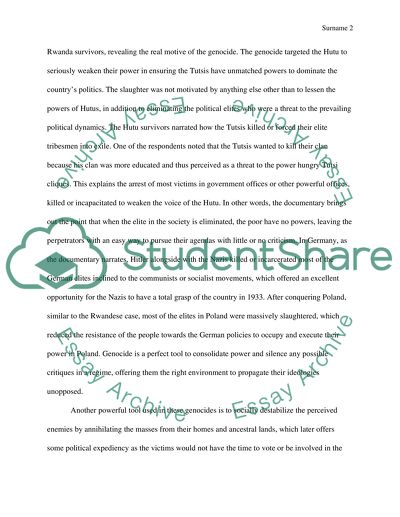Cite this document
(“Reflection paper on the documentary Worse than war by Mike DeWitt with Essay”, n.d.)
Retrieved from https://studentshare.org/visual-arts-film-studies/1486485-reflection-paper-on-the-documentary-worse-than-war
Retrieved from https://studentshare.org/visual-arts-film-studies/1486485-reflection-paper-on-the-documentary-worse-than-war
(Reflection Paper on the Documentary Worse Than War by Mike DeWitt With Essay)
https://studentshare.org/visual-arts-film-studies/1486485-reflection-paper-on-the-documentary-worse-than-war.
https://studentshare.org/visual-arts-film-studies/1486485-reflection-paper-on-the-documentary-worse-than-war.
“Reflection Paper on the Documentary Worse Than War by Mike DeWitt With Essay”, n.d. https://studentshare.org/visual-arts-film-studies/1486485-reflection-paper-on-the-documentary-worse-than-war.


